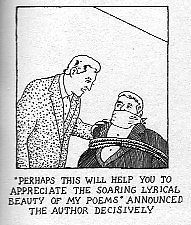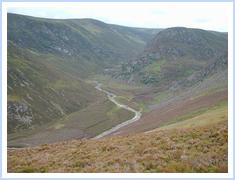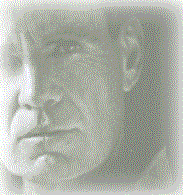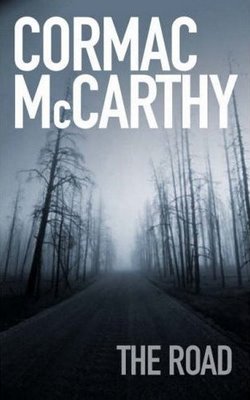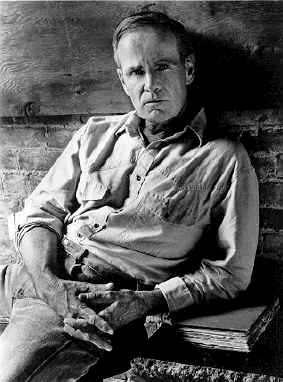
During my first year of study for the M.Litt in Creative Writing at Glasgow University the programme was run by the giants of Scottish Literature James Kelman, Alasdair Gray and Tom Leonard. It was a year of humbling and wonder.
The following year Professor Willy Maley returned from a sabbatical and immediately there was a wind of change. He is an exciting and excited character, deliciously interested in literature. I remember him bubbling with enthusiasm as he let slip the title to a recent piece of literary criticism he had written: From T.S Elliot to Missy Elliot. He brought a much greater sense of possibility to me. Rooting writing firmly in whatever context or background one may find themself in.
Below is a sample of the way Willy Mayley's debates soon descend and swoop.
‘Golden Age Rage: Is the Claimed Renaissance in Scottish Literature Real?’, (an exchange of views between Stuart Kelly, Literary Editor of Scotland on Sunday, and Willy Maley), Product: Over the Counter Culture 11, The Modern Myths Issue (Winter 2006-7), pp. 36-41, ISSN 1468-9901.
“In a small country, the nest of genius is well hidden” (Dubravka Ugresic).
Dear Stuart
The quotation chosen by Chris Small to open our exchange makes me uneasy. I’m suspicious of the notion of “genius”, nesting or otherwise, unsure too as to why it should be more “hidden” in a small country. For some reason I’m reminded of the Irn-Bru 32 cuckoo with its cry of “Wakey-Wakey!” Or worse still, the Dead Parrot sketch. Before I take flight, I want to follow that quotation with a more grounded comment from James Kelman: “Good art is usually dissent; I want to be involved in creating good art”. I like this, not just because it’s by a Scottish writer, and roots our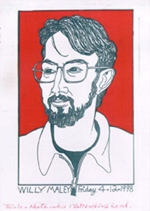 discussion in the small country we live and work in, but because it raises the issue of dissent, whereas Ugresic implies we can all agree on what constitutes genius – or greatness – once we find its nesting-place. I might stretch it and say: “Good criticism is usually dissent; I want to be involved in creating good criticism”. We’re not birds of a feather, you and I, so I expect by the end of this we’ll have agreed to disagree. Genius aside, I don’t believe we can come to a consensus over what makes – or breaks – a “good” writer, precisely because good writing, like good criticism, is all about “dissensus”, to borrow a term from African American critic Cornel West. Does “good” writing in Scotland get the criticism it deserves? Or do cuckoo critics evict fledgling geniuses from the nest, in the interests of feathering their own?
discussion in the small country we live and work in, but because it raises the issue of dissent, whereas Ugresic implies we can all agree on what constitutes genius – or greatness – once we find its nesting-place. I might stretch it and say: “Good criticism is usually dissent; I want to be involved in creating good criticism”. We’re not birds of a feather, you and I, so I expect by the end of this we’ll have agreed to disagree. Genius aside, I don’t believe we can come to a consensus over what makes – or breaks – a “good” writer, precisely because good writing, like good criticism, is all about “dissensus”, to borrow a term from African American critic Cornel West. Does “good” writing in Scotland get the criticism it deserves? Or do cuckoo critics evict fledgling geniuses from the nest, in the interests of feathering their own?
Willy
Dear Willy
Well, I’m also discomfited by the notion of ‘genius’, but for reasons we’ll come on to in due course. It rather perplexes me that, in order to advance the claim that “good criticism is usually dissent”, you appeal to the authority of James Kelman. Surely, following that logic, you should dissent from dissent itself?
But, to the questions with which you end your opening salvo: “Does “good” writing in Scotland get the criticism it deserves? Or do cuckoo critics evict fledgling geniuses from the nest, in the interests of feathering their own?”
Taking the first question, I’m glad you put good in ironic, finger-twitching quotation marks. I think the point of this debate is to analyse what we mean by good, since there is a veritable tintinnabulation of critics, arts bureaucrats and writers chorusing that we live in a Golden Age of Caledonian Letters. My position is clear: our contemporary writers might not get what they want, but they should get what they need. A high bar. A rigorous scepticism that won’t wallow in hype, but judiciously examine our big claims to greatness in a little world.
In terms of question two, I don’t really understand what you are implying, particularly since you use a term of which you’ve already said you’re suspicious. To call critics cuckoos also seems problematic: the cuckoo, notoriously, doesn’t make its own nest. It is an interloper, a con-artist, a deceiver, an exploiter. It doesn’t really chime with the idea of a “professional dissenter”. You propose the ideal critic as a persistent nay-sayer to a nebulous, conspiratorial consensus, and then figure the critic as a bloated impostor who mimics the writer for his or her own advantage.
To Chris’s questio n. I’m sure we agree that Scotland is a small country. I take Ugrasic’s quotation as meaning that genius is rare and takes subtlety to discover, especially in small countries, where the necessity of advocating cultural uniqueness might mean that a great deal of local literature makes claims to being of global importance. Or to put it another way: is Kelman or Lochhead or Gray as good as Gunter Grass, or Ngugi wa Thiong’o, or Thomas Pynchon? The question of greatness will haunt this debate: once you declare your own aesthetic agenda (I have mine), we might be able to argue, rather than swirl in the mire of agreeing to disagree.
To quote Breyten Breytenbach, might we find uncitizens of Scotland who are “defined... not so much by what they oppose or even reject? [Who] ventured into zones where truths no longer fit snugly and where certainties do not overlap”?
Stuart
Dear Stuart
It’s good to squawk, and ruffle feathers. First off, I never “appeal[ed] to the authority of James Kelman”. I quoted him. And I do dissent if his notion of “dissent” implies writing of a particular political persuasion. I’ve never subscribed to Sartre’s idea that “The art of prose is bound up with the only regime in which prose has meaning, democracy”. Literary art is edgiest when bound up with tyranny. Bad politics produces good writing, as anyone familiar with Yeats’s “Leda and the Swan” knows. Conor Cruise O’Brien asked of it: “How can that political ugly duckling be turned into this glorious Swan?” All my geese aren’t swans. Accusing me of envisaging “a nebulous, conspiratorial consensus”, you invoke a conspiracy of “a veritable tintinnabulation of critics, arts bureaucrats and writers chorusing that we live in a Golden Age of Caledonian Letters”. If such a chorus exists, this Don isn’t part of it. I experience Golden Age Rage too.
Stuart, your argument perplexes me. You’re “sure we agree that Scotland is a small country”. Granted. You “take Ugresic’s quotation as meaning that genius is rare and takes subtlety to discover, especially in small countries, where the necessity of advocating cultural uniqueness might mean that a great deal of local literature makes claims to being of global importance”. I’d dispute your extrapolation. If that’s what Ugresic means, I don’t agree with her either. You then “put it another way” and ask: “Is Kelman or Lochhead or Gray as good as Gunter Grass, or Ngugi wa Thiong’o, or Thomas Pynchon?” Now you’ve lost me. You speak “especially” of “small countries”, then invoke Germany, Kenya, and America.
If you’re making serious comparisons, the artist formerly known as James Ngugi comes closest to Kelman. Ngugi writes in English and Gikuyu, Kelman in English and Scots. Both are “committed” writers. Ngugi got the idea for his last English novel, Petals of Blood, travelling north from Leeds to Inverness in the late 1960s, wondering what it would be like to introduce capitalist modernity to remote parts. Scotland inspires great writers as well as producing them.
You say: “The question of greatness will haunt this debate: once you declare your own aesthetic agenda (I have mine), we might be able to argue, rather than swirl in the mire of agreeing to disagree.” Swirl in the mire”? “Wallow in hype”. Stuart, you need an editor. Declare your “aesthetic agenda” and be damned. I’m open to all kinds of writing. I’ve no hidden aesthetic agenda. My bar’s not high but broad. I like the Breytenbach quote – that prominent Afrikaans writer who took French citizenship knows the pitfalls of prejudice. Our own Republic of Letters exists within a larger monarchy where citizens are subjects. I like close comparisons. Closer than Ugresic’s Croatia or Breytenbach’s South Africa is Irish writer Eavan Boland’s question: “What is this thing – a nation – that is so powerful it can make songs, attract sacrifice and so exclusive it drives into hiding the complex and skeptical ideas which would serve it best?”
We agree on the need for scepticism, but I see indubitable talent where you see a high bar, with you as Olympic umpire. Consider two intimate outsiders on Scottish literature. Yeats contrasts two classes of poet, those like Coleridge and Wordsworth who “write for a clique, and leave after them a school”, and “the bardic class – the Homers and Hugos, the Burnses and Scotts – who sing of the universal emotions, our loves and angers, our delight in stories and heroes, our delight in things beautiful and gallant. They do not write for a clique, or leave after them a school, for they sing for all men.” I take Yeats’s judgment seriously. More recently, Colm Tóibín, introducing The Penguin Book of Irish Fiction, contrasts the vibrancy of new Scottish writing with a more cautious Irish literary landscape: “Most of the work being produced in Ireland now is formally conservative…This new conservatism among fiction writers both north and south of the border is most clear when you compare the calmness of contemporary Irish writing with the wildness of contemporary Scottish writing. It is as though the legacy of Sterne and Swift, Joyce, Beckett and Flann O’Brien had taken the Larne-Stranraer ferry; in the writing of James Kelman, Alasdair Gray, Irvine Welsh, Janice Galloway and Alan Warner there is political anger, stylistic experiment and formal trickery. Books are written, as in Ireland in the old days, to replace a country”. I take Tóibín seriously.
For these formidable Irish writers, Scotland presents a shining example. You beg to differ. You see a self-congratulatory conspiracy. I see a national literature judged the world over as of unparalleled excellence and influence. Dissent and doubt are necessary, so is nurturing. We’ll never reach a neutral notion of good writing,  but in denying Scotland has contributed disproportionately to world literature, you’re having a laugh. Wakey-Wakey! Scottish writing’s been judged excellent at the bar of international opinion, despite wing-clipping at home by carping culture vultures, the old nobody-here-but-us-chickens cultural cringe. This small country’s produced literary giants with unquestionable international reputations: Burns and Scott, Hogg and Stevenson, Gunn and Gibbon, Kelman and Spark. Its oil’s been squandered, not its ink. Patrick Kavanagh contrasted the parochial view – good work arises from one’s own backyard – with the provincial view – good writing happens elsewhere. Which side of the fence are you on? Set the bar high – then toss the caber.
but in denying Scotland has contributed disproportionately to world literature, you’re having a laugh. Wakey-Wakey! Scottish writing’s been judged excellent at the bar of international opinion, despite wing-clipping at home by carping culture vultures, the old nobody-here-but-us-chickens cultural cringe. This small country’s produced literary giants with unquestionable international reputations: Burns and Scott, Hogg and Stevenson, Gunn and Gibbon, Kelman and Spark. Its oil’s been squandered, not its ink. Patrick Kavanagh contrasted the parochial view – good work arises from one’s own backyard – with the provincial view – good writing happens elsewhere. Which side of the fence are you on? Set the bar high – then toss the caber.
Willy
Dear Willy
I’m going to run through your quotations and objections relatively briefly, and conclude with my own methodology for judgement.

In terms of the dissenting nature of criticism, it seems to me that dissent must be dissent from; hence my invocation of its implied consensus. It is intrinsically bound with its own opposition, to the extent of (quasi)legitimising that from which it departs. The Golden Age brigade is certainly no conspiracy I’ve invented, but an observation: a present day “Golden Age of Scottish literature” has been advocated by Allan Wilson MSP, Gavin Wallace of the Arts Council and the British Council on its website. Similar claims – “Scottish poetry is in its healthiest state for hundreds of years” (W N Herbert); “In the last 25 years Scottish writing has undergone a Renaissance” (Scottish Publishers Association), “The last 15 years in particular have witnessed an unprecedented flowering” (yourself, in the 100 Best Scottish Books) – such assertions are ten a penny. I wouldn’t deny anyone the right to make such claims: all I ask is that they make the criteria for their
judgement explicit.
I’m sorry that my argument was not clearer before you lost me. Wee country – can it punch above its weight against a big country? Is our local up to being global? Are we in danger of doing an “Eddie ‘the Eagle’ Edwards” and celebrating at home what is ignored abroad?
That a bar is high does not preclude a wide range of taste. Again, it’s a question of uncovering how we judge – saying “Is Iain M Banks better than China Mieville?” or “Is Ian Rankin better than Henning Mankell?” is no different from saying “Is Muriel Spark better than Margaret Drabble?” By the way, a broad bar, I think, is a kind of plank. Or perhaps stumbling block.
Your quotes then come thick and fast, and I don’t feel that trading favourite quotes is a particularly effective way of exploring. The Yeats quote, while interesting, seems typically scant on evidence. Was there a school of Wordsworth? Influence certainly, imitation occasionally, but a school? And is Scott so ‘universal’? It’s easier to see a school of Scott than of Coleridge. Colm’s quote is, again, interesting; and I’d agree with him about a certain conservatism in some contemporary Irish writing. But why not look West, to the writings of Millet, Rosenberg, Danielewski, Homes, Kalfus… or around the globe to Yang Lian, Etienne van Heerden, Amelie Nothomb or Tor Bringsværd; writers to my mind far more politically engaged, formally innovative and subtly radical than, say, “Porno”, “The Worms Can Carry Me to Heaven” or “You Have to Be Careful in the Land of the Free”.
It’s here that things start to become conflicted. Do I think Scotland has produced great literature? Emphatically yes. Has it produced a disproportionate amount? Well, given that, as a Scot, I know it better than I know the history of Persian, Belgian or Magyar writing, I might notice it more often, but I can’t really say: and neither can you. The fact that most of Scottish Literature is accessible to an Anglophone audience, and given the global reach of English, a certain disproportion is built into the assertion. How would one even go about validating the claim you have made, the one that if I dissent from I’m “having a laugh”? Playing the “tartaner than thou” card is easy.
Is the writing being produced now of a stature to stand proud on an international stage? Again, we need to decide what we’re talking about. If there were a Da Vinci Code from an author in Hoy or Hawick would that be a triumph for Scottish literature? There are living writers whose work I admire a very great deal; there are also writers whose works I feel are over-wrought, under-thought, ill-conceived or shoogly in their plotting to say the least.
The French, for example, feel no need to insist that with Villon, Rabelais, Ronsard, Montaigne, Corneille, Racine, Laclos, Baudelaire, Flaubert, Verlaine, Rimbaud, Stendhal, Mallarmé, Proust, Aragon, Céline, Jaccottet, Perec, Leys and Darrieussecq they deserve to be recognised as a great literary nation. It’s not the cringe I fear, but the tantrum, the look-at-us! look-at-us! You are doing an admirable job as a cheerleader, but Wakey-Wakey Willy! There’s a world out there that exists for reasons other than providing blurbs for Scottish writing. Shaking other people’s pom-poms is different from proof.
So: my agenda. Wikipedia, that free-for-all internet encyclopaedia, has a feature called a “Disambiguation Page”. Great literature is the opposite of that. Before you reach for an old copy of F R Leavis, and berate me again about my supposed Olympian pose, let me make this very clear. Language, the world, and individuals are complex, complex entities. I admire the literature that unveils as it unravels that to the reader. Complex doesn’t mean difficult: it can be deceptively simple; as in Russell Hoban’s The Mouse and his Child, or MacDiarmid’s “Empty Vessel”. If writing reduces the reader – by stereotype, by monoglossia, by complicit limitation – it performs something aggressive against the whole idea of reading.
I have some final questions. You’ve said that your bar is broad: tell me who you rejected from the two hundred books mentioned in your 100 Best Scottish Books, and then, for example, why Alan Massie isn’t there in the top 100 but J K Rowling is? At least 200 choices were made: what were the reasons behind those decisions?
PS: is our literary production edgy at the moment? If so, are we bound up with tyranny? Answers on a postcard to Amnesty.
PPS: “We agree on the need for scepticism”. How then can something be indubitable?
Dear Stuart
I can’t speak for Allan Wilson or Gavin Wallace, but I imagine they were speaking in an official capacity, promoting Scottish literature. I was publicising a particular project, the 100 Best Scottish Books, to which you contributed (thanks). Context is everything. There’s a time and place for puff and blurb. Like here: “Is the writing being produced now of a stature to stand proud on an international stage?” Yes: Alasdair Gray, AL Kennedy, Don Paterson, Alan Warner.
Conversely, you mention Scottish writers chiefly as a putdown. All your comparisons show them in a bad light. You talk of “the global reach of English”, ignoring Scots and Gaelic. You act like political writing was the province of others. You urge me to “look West” – young man! – where the real talent is. I see it in the West of Scotland. You insist other “writers” are “far more politically engaged, formally innovative and subtly radical than” selected Scottish counterparts, but you list only three novels without naming the authors. How can you compare nine diverse “writers” to three recent books? It’s a false comparison, a smokescreen. We’re discussing good writing in a Scottish context. You urge me to “look West … or around the globe”. You say: “Language, the world, and individuals are complex, complex entities.” The only complex at work here is the inferiority complex or cultural cringe.
You say “as a Scot” you know Scottish literature “better than … the history of Persian, Belgian or Magyar writing.” Many Scots grow up unfamiliar with the history of their own literature. Some go to University to study “English Literature” – there’s only one Department of Scottish Literature in Scotland, at my University. You ask important questions aimed at “uncovering how we judge”, profound enquiries like “Is Ian Rankin better than Henning Mankell?” Come off it. Can’t we judge Scottish writing on its own terms, acknowledging it’s earned an international audience? There’s lots in translation. Your whole argument boils down to saying Scottish writing isn’t a patch on what you read on your holidays. Your “methodology for judgement” is to ask if Muriel Spark is better than Margaret Drabble. The answer’s yes, but that’s beside the point. Drabble wrote a silly review of Spark’s The Takeover in the New York Times 30 years ago in which she described Not To Disturb and The Driver’s Seat as “thin” novels with “thin” subjects. This suggests she’s not risen to the challenge of Spark.
I say again, for you, good writing happens elsewhere. Witness your long list of better thans and short list of Scottish also-rans. I believe good writing happens here. I knows it – I grows it. You don’t invoke these pairings to compare or contrast, only to glibly demean the contestants, like some cheesy game show compère. I might want to compare Buchi Emecheta’s The New Tribe with Jackie Kay’s Adoption Papers, or Cyprian Ekwensi’s People of the City with Kelman’s A Disaffection, not to see who’s the bestest but to discover how writers engage with adoption and urban angst. Reading is an armchair activity, not arm-wrestling. To conclude: none of your comparisons are serious. Critics beyond Scotland compare Kelman with Kafka. To his credit, Kelman shrugs off such comparisons.
You say certain Scottish writers “are over-wrought, under-thought, ill-conceived or shoogly in their plotting to say the least”. Who do you have in mind? Scottish writers excel across genres. This disconcerts you. When Yeats looks enviously across the water he wants for Ireland what Scotland has. Nobody’s neutral. Everyone has a stake and chips on their shoulder – you, me, everybody.
When Chris Small contacted me initially about this dialogue the suggested topic was “whether Scottish writing is currently experiencing a ‘golden age’, as is often claimed; the quality of opportunities available to emergent writers; and the manner in which the work of Scottish writers is promoted and marketed”. Later, Chris told me “Stuart is keen to discuss how in Scotland we come to a consensus over what makes a ‘good’ writer”. However, your real interest lies in listing writers who have nothing to say about this, or nothing you’re prepared to offer. You name-check thirty non-Scottish writers but can’t bring yourself to name the authors of the Scottish novels you so readily and rudely dismiss. Sir, you are impertinent!
You ask who I “rejected from the two hundred books mentioned in … 100 Best Scottish Books”. That I managed to showcase 200 writers in a list of 100 Best Books speaks volumes for my ingenuity and inclusiveness. Remember this was a list of books, and among those “rejected” in favour of others, Lanark yielded to Poor Things, The Busconductor Hines gave way to A Disaffection, Kidnapped succumbed to Jekyll and Hyde. Many of my first choices yielded to others’. Massie surrendered to the masses. I compiled, in consultation with experts in the field, a list of 200 writers, each the author of a distinctive Scottish book, broadly defined, covering every corner of the country, every form and genre, balancing prestige and popularity. Some books with broad appeal supplanted others. I’m still reeling from the sheer brio of it. The end result is a stunning cornucopia. In my introduction, and in articles in Scottish newspapers, I expounded the rationale. There’s no need or room to repeat it here. I’d like to see your counter-list.
Quote me happy. I never claimed to be “tartaner than thou”. You refer me to the Wikipedia’s ‘“Disambiguation Page”’ to tell me “Great literature is the opposite of that.” Is this your “aesthetic agenda”? You said dissent was “intrinsically bound with its own opposition”, so maybe you mean great literature is really Wikipedia – a novel idea. As for the French not needing to insist they’re a great literary nation, can I quote you on that? I’d appreciate some evidence. They’re likely proud of their literary culture, as I am of mine. You “admire the literature that unveils as it unravels”. I admire writing that veils and ravels. I loathe criticism that reduces writing to a beauty contest.
As for tyranny, check out the Amnesty website. Read about rendition flights going through Glasgow International, Edinburgh, Leuchars and Prestwick, the latter also the conduit for bombs for Israel. Scotland, a stateless nation within a state (Britain) within a state (America), is bound up with tyranny. Still, its writers have the attention and respect of the world. There’s genius, greatness, goodness in the nest. That’s a feather in our cap.
I’m sure of Scotland’s writing talent but sceptical about its critical establishment, especially its literary reviewers You can have the last word for now. But let the conversation continue. Let a hundred flowers bloom, a hundred thistles get grasped. Let dissent take the place of descent. Rather than judgements handed down from on high, critic to writer, let our writers teach us things about language and life that we, with all our bookishness, never knew. We need to look under our noses, not down them.
Does my tartan tantrum look big in this?
Willy
Willy
Well, now I'm worried. Reading your final response, I'm agog that you so persistently misread what I'm saying. All the phrases that imply I see myself as some kind of arch-arbiter - the Olympian, looking down his nose, making comparisons to "glibly demean" - have been conjured up in your own imagination. I am posing questions, and am genuinely interested in the answers that might arise. Somehow you are threatened by this, it appears, and resort to name-calling.
You accuse me of believing that literature happens elsewhere. I'm happy to refute this: in the past few years I have written positive reviews of writers such as Frank Kuppner, John Aberdein, Janice Galloway, David Kinloch, W N Herbert, John Burnside, Kirsty Gunn and Catriona McPherson.
It's not that I think it only happens elsewhere, but that it also happens elsewhere. I would have hoped that, by the beginning of the 21st century, it might be acceptable to be a Cosmopolitan Scot; but evidently no. Don't panic, Willy: if you want to sit with your fingers in your ears, I'm happy to leave you there. But you're missing out. You might -
Heaven forefend! - find a book you like better than a Scottish one.
Now, there are Scottish writers whose work I find less impressive. Is that somehow unpatriotic? It is forbidden in the New Golden Age to think that Irvine Welsh has gone off the boil; that Val McDermid's prose is exceptionally awkward; that Des Dillon's poetry is numbingly simplistic; that Carol Anne Duffy has become programmatic? I'm happy for independent minded readers to disagree with me, and therein lies the difference. I want a debate and you want a gang. I'm curious as to others' process of judging, you wish to stifle dissent if it's not dissent in the right direction.
As for the French, I'd recommend Dernier inventaire avant liquidation by Frederic Beigbeder - a rather less insular take on the making of lists.
Why this bizarre attitude? I'm more than happy to say that there are great Scottish writers; but I'm never going to be so arrogant as to claim that Scotland is unprecedented, superior, or singularly blessed by the Muses. I've laid out my agenda - to state it in another form, I like TARDIS books that are bigger on the inside, and leave the reader feeling fuller yet pared down. You, on the other hand, throw out myriad different agendas. It's about others saying we're great. It's about translations. It's about us saying we're great. It's popularity. It's prestige. And when asked a simple question - why was Massie in the lower 100 and Rowling in the upper - you add the caveat that it was done "in consultation with others". Come on - defend your decision, rather than say some other kids made you do it. I'm curious. I'm listening.
And, dear me, but you're awfully pleased with your list. Self-praise, as my Mum says, is no praise. It was, admittedly, an interesting selection, and I was happy to write about two of my favourite authors, Hume and Friel. But the minute a debate started, you got defensive. The plain silly decision to include Woolf, Conrad and Orwell consumed far more column inches than the virtues of the Scottish authors.
So why this desire for me to be the ogre, and literary reviewers to be the one thing you're genuinely sceptical about? I think you rather give the game away with the "I knows it - I grows it" comment. Tempting and inaccurate though it might be to say "and I mows it", your agenda is at least plain here. A hundred flowers bloom, under the tender eye of
Groundskeeper Willy. Of course we're living in Eden: after all, you planted it.
I'd make no such claims for literary journalism. It is a modest affair, soliciting the opinions of others, allowing them to speak for themselves. I sent out one book that had a story by a friend of mine: the reviewer singled that story out for dispraise. I ran the review. The reviewer and I then spoke, and got to know better why and how that call was made. And that was good. That was a debate.
William McIlvanney recently said that he "thought there is a need in Scotland now we've got the parliament to over-praise all things Scottish. That's a very unScottish thing to do". I agree wholeheartedly with him. It's not a Golden Age, it's Wonderland, where everyone wins and all shall have prizes.
The nest of genius is well hidden, given the cacophony of territorial chirruping. A plethora of seagulls croak louder than a nightingale.
Stuart

